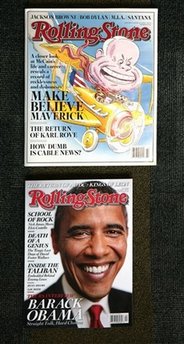Being an avid feed reader junkie for several years, one of the regular posts that crops up from a quiet blog is a shout of “I’m Still Alive!”. This is often followed by some kind of self-punishment declaring “Oh, I’ve been a bad, bad blogger, but I’m going to get my act together!”
You could be really boring and make it a one line yip, possibly followed up by a similar yap after another week of silence. You know a blog is on the way out when this happens.
Or, one could be very creative in delivering this standard confession:
Brant Hansen did this a couple days ago with a post titled And the Award for “Worst Blogger Ever” goes to…
So here’s what’s happened: A few months ago, they started syndicating our radio show. And that’s neat. But it’s confronted me with something I didn’t think about: Emails. Bushels of ’em.
To: Brant. From: Every Person Alive. RE: Every Conceivable Thing, Mostly Tragic Stuff
I wrote awhile back that C.S. Lewis took the time to write to each correspondent. It doesn’t quite suffice to say, as I did, that “I’m no C.S. Lewis.” Let’s just say that if Clive is an F-16, Brant is a paper airplane, badly-folded.
Or, our local author N.D. Wilson laments his lack of blogging while disclosing his next brilliant social business plan in a post called Don’t Let the Chia Pet Die:
I will gather a stable of writers, and then take clients too lazy (or busy) to blog, but who are desirous of all the immense gratification that comes from watching web stats rise, pie charts swell, and comments flourish. These lazy people will forward all photos and news items to their assigned ghost-blogger, who will then over-romanticize humorous, coy, and empathetic narratives around them.
Alas, I have nothing so clever – just parroting quotes from other folks and throwing in a little commentary. Only my wife reads this blog anyway. Actually, I think by brother might read it sometimes too. And the guy from Portland with the cool photos on Flickr.
I was on a roll, writing at least a little something every day, then I lost my way.
And save our souls, we’re playing dead
And mine for gold in a heart of lead
And turn around and save yourself
We found our way and blocked it out
– Drown Out, The Swell Season, Glen Hansard & Marketa Irglova
Actually what happened is I just got a new job! I continue to shun my degree in music theory and move up the IT ladder. It’s been a good time so far. I’ll keep recording other thoughts here as I bumble on down the road.




